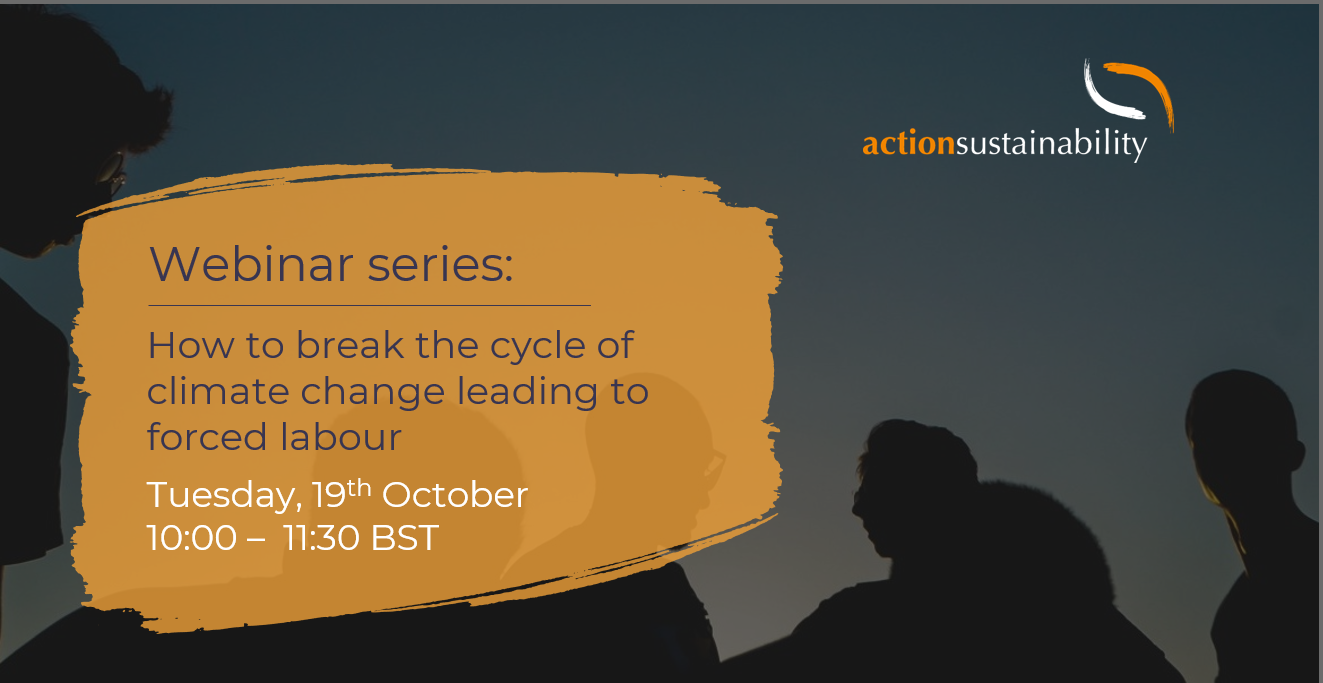This webinar took place on Tuesday 19th October 2021.
About this event
By joining this free session you will hear from experts across sustainability on how the direct impacts of climate change, and our response to it, are leading to negative social impacts.
There is a rise in awareness, and a growing number of instances, of people are being forced away from their homes and countries due to changes in weather patterns. There is also the use of exploited individuals in the creation of the technology that are publicised as part of the solution to climate change. This is relevant to any organisation that procures products and services (i.e. virtually all of us!).
We are delighted to have speaker Matthew Galvin from Transport for London joining us for an open panel discussion on these issues – what and where are they, how significant are they, and, most importantly, what can we do about them through or organisational policies and the implementation of them with our supply chains.
Facilitated by Action Sustainability’s James Cadman and Helen Carter you will gain more of an understanding of the complexity and interconnectedness of supply chains, but more importantly gain some steer in what action you can take in tackling these issues.
This session is open to anyone from any sector who has an interest in addressing the extensive nature of supply chain impacts.
Session time: One hour 30 minutes
This session is free to attend.
About the speakers:
James Cadman heads up Action Sustainability’s Consultancy team. He has worked in product sustainability and sustainable procurement for more 20 years, having worked at AEA Technology and ERM prior to Action Sustainability. James’ work is focused on understanding the sustainability impacts that products have through their life cycles and applying that to supply chain sustainability initiatives. He has led many projects on developing sustainable procurement policies, devising product standards and guidance, and undertaking carbon footprinting in order to improve product and market sustainability performance.
Contact James for further information james@actionsustainability.com
Helen Carter is an experienced modern slavery and procurement professional who has worked for Action Sustainability for the past 10 years. She is at the centre of knowledge in the fight to combat modern slavery, developing numerous tools designed to help organisations and their supply chains meet and/or exceed the requirements of the Modern Slavery Act 2015.
Contact Helen for further information helen@actionsustainability.com
Matthew Galvin has been working in the field of responsible procurement at Transport for London (TfL), the Greater London Authority (GLA) and the London Fire Brigade for over 15 years. He leads TfL’s Modern Slavery activity, including engaging with their supply chain on Electronics Watch and implements responsible procurement (carbon reduction; fair employment practices, modern slavery, etc) requirements across TfL’s approximately £6bn annual spend.
